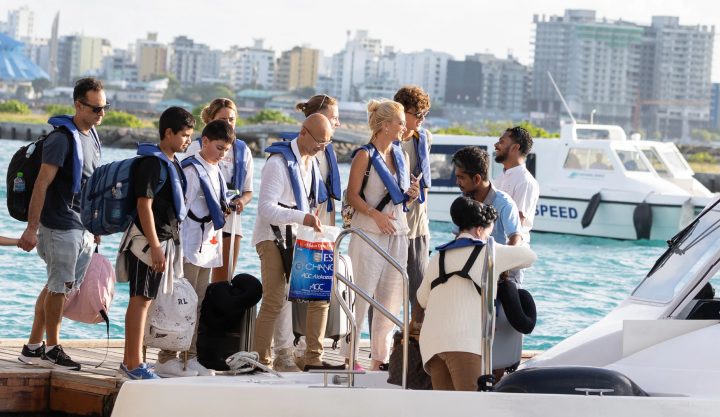
Debt, weak policies affect Maldives’ tourism, investor appeal, new MATATO report warns
The Maldivian economy is in a fragile state primarily caused by a dollar crisis and excessive government expenditure, with negative impacts on the local tourism sector and investor interest in the destination, a new study by the Maldives Association of Travel Agents and Tour Operators (MATATO) said on Thursday.
The report, based on extensive qualitative surveys and interviews with industry stakeholders, said the Maldives banking sector is grappling with significant issues, including a dollar crisis, lack of competition, a weak regulatory framework, the highest banking fees in the region, and significant limitations on credit and debit card use for foreign purchases. The presence of a dollar black market with limited intervention from the central bank, Maldives Monetary Authority (MMA), is causing instability, the report said, adding that the central bank has failed in this area.
According to the report, the Maldives is experiencing a severe debt crisis with the sovereign debt estimated at $6.8 billion, which is equivalent to 113% of the country’s GDP. The government’s excessive spending, increased recurrent expenditure, and reliance on tourism income have contributed to this crisis. Additionally, the government’s practice of printing money has led to inflation and significant depreciation of the Maldivian Rufiyaa, it added.
MATATO has previously lobbied against the increase in the Tourism Goods and Services Tax (TGST) and Goods and Services Tax (GST), expressing concerns that it would negatively impact the tourism industry, by potentially making the Maldives a less competitive tourist destination, increasing prices for tourists and harm the Maldivian economy.
The organisation said its survey and discussions have uncovered a growing concern that the Maldives is losing its appeal among potential investors. Over the past 4-6 years, a discernible deceleration in investor interest has been observed, with no significant new entrants into the market, it added.
“There has been a noticeable waning of enthusiasm for investment in the Maldives. In contrast, global investment trends reveal that destinations such as Fiji and Zanzibar have successfully attracted a considerably larger number of investors during a comparable timeframe. This divergence in investor interest poses a noteworthy concern for the Maldives,” the report read.
MATATO’s recommendations to address the concerns include:
- The government should provide financial incentives and support to small and medium-sized enterprises (SMEs) and local businesses that are struggling
- The government and MMA should address the dollar crisis more proactively, promote competition, strengthen the regulatory framework, and take action to address the dollar black market
- Urgent steps should be taken to manage and address the country’s debt crisis, including reducing expenditure, implementing austerity measures, increasing revenue, and reforming state-owned enterprises (SOEs)
- A careful re-evaluation of tax policies, including the GST increase, is necessary to ensure the sustainability of the tourism sector
“MATATO continues to call for less wasteful spending, especially regarding subsidies, public sector investment projects (PSIPs), political appointments, and other expenses,” the report read.
“MATATO calls upon the Maldivian government, industry stakeholders, and international organizations to collaborate and implement measures that will safeguard the Maldives’ economic stability, preserve its natural beauty, and ensure the long-term success of its tourism industry.”






